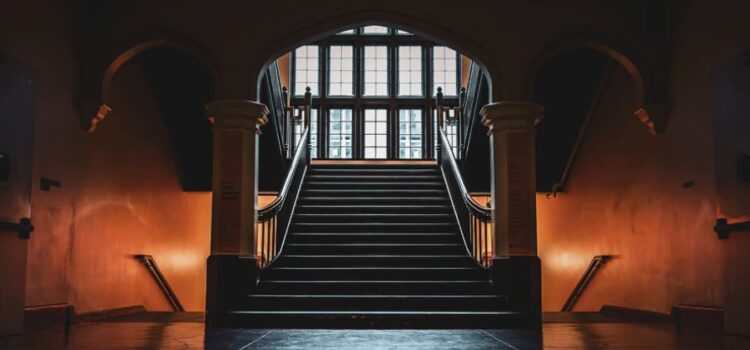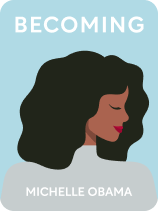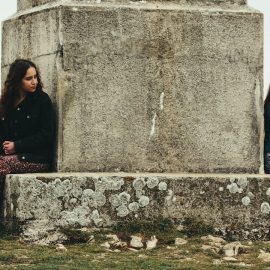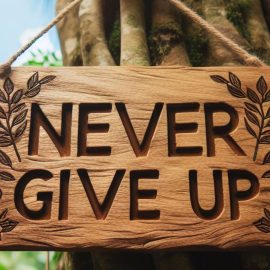

This article is an excerpt from the Shortform book guide to "Becoming" by Michelle Obama. Shortform has the world's best summaries and analyses of books you should be reading.
Like this article? Sign up for a free trial here .
What was Michelle Obama’s first experience with imposter syndrome? Why did the feeling of “I’m not good enough” stick with her?
Michelle Obama struggled with imposter syndrome for almost her entire life. She recalls that her first time wondering if she was good enough was after she was accepted into Chicago’s first magnet high school.
Keep reading to learn more about Michelle Obama’s imposter syndrome.
Michelle Obama and Imposter Syndrome
The story of Michelle Obama’s imposter syndrome started in eighth grade, Michelle tested into Chicago’s first magnet high school, which provided specialized instruction for high achievers. She started ninth grade at a brand new school that offered classes that Michelle had never been exposed to, like pottery and photography.
On her first days at her new school, Michelle felt insecure as she struggled to find her place in the social community. The student body was about 80% nonwhite; the majority were Blacks. Her fellow classmates were high-achievers like her; many were the sons and daughters of doctors and lawyers. They came from a world of privilege and connection unlike anything she had ever known.
She knew it was an honor to attend this school, but she felt insecure about her family background, her neighborhood, and her own intelligence. Just getting from her house to the new school was a major effort: She had a 90-minute bus ride on two different buses, so she had to get up at 5 a.m. and didn’t return home until 6 p.m.
Also, for the first time in her life, Michelle didn’t have big brother Craig to pave the way for her because he attended a different high school.
But after a few weeks of getting used to the new school and routine, Michelle realized that if she continued to study hard as she had always done, she could excel in this new environment. As her confidence grew, she began to make new friends and earn good grades. She didn’t achieve straight A’s like she had in previous years, but she came close.
Reflection
Michelle looks back and says that if she were to categorize her concerns as a teenager, they would be filed under one overarching question: Am I good enough? Her entry into a high-achieving high school only underscored her doubts and insecurities about her abilities. Ultimately, her ingrained work ethic helped her succeed. She quickly learned that if she put in extra hours of studying, she was able to keep up with the best students, and her confidence blossomed.
Michelle Applies to Princeton
Sometime during high school, Michelle set her sights on attending Princeton University, mostly because her brother Craig was having a good experience there. Michelle had excellent grades, had been inducted into the National Honor Society, was treasurer of her senior class, and in the top 10% of her graduating class.
Despite all these accomplishments, when she told her high school counselor that she wanted to apply to Princeton, the counselor told her that she probably “wasn’t Princeton material.”
The counselor’s words hurt, but Michelle refused to lower her aspirations. She decided not to let one person’s opinion budge her from her goal. She did exactly what her parents had taught her to do—strive to achieve what she wanted, even if it was a long reach to get there.
Michelle overcame her imposter syndrome and applied to Princeton and was accepted. She never went back to the counselor to say that she had been wrong. She had no need; Michelle proved to herself that she was capable, and that was the only affirmation she needed.
Reflection
Michelle looks back on how she felt after meeting with this counselor and reminds us that “failure is a feeling long before it’s an actual result.” Had she listened to the counselor’s advice, all the confidence gains she had made during high school would have been lost.
In her eight years as first lady, Michelle met hundreds of highly accomplished people, many of whom told a story similar to hers: Someone in their young years doubted their ability to succeed at their goals. The naysayers, critics, and doubters are always standing at the door, but the most successful people learn to push past them.

———End of Preview———
Like what you just read? Read the rest of the world's best book summary and analysis of Michelle Obama's "Becoming" at Shortform .
Here's what you'll find in our full Becoming summary :
- How Michelle Obama went from the South Side of Chicago to the White House
- Why much of her success came from her being determined from a young age
- How Michelle Obama continues to push herself and discover new opportunities






